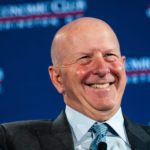Uniswap (UNI), the governance token of the popular decentralized exchange protocol, is experiencing price uncertainty. After a recent rally, investors are taking profits, leading to a drop in UNI’s value. However, mixed market indicators make the future direction of UNI unclear.

Rally Fizzles as Profit-Taking Emerges
UNI enjoyed a significant price increase in the past week, but that momentum appears to be fading. Investors who bought UNI at lower prices are likely cashing out their profits, leading to a sell-off and a subsequent price drop.
Technical Analysis Paints a Cloudy Picture
Technical indicators like the Relative Strength Index (RSI) suggest UNI might be overbought, further supporting the profit-taking narrative. Additionally, UNI faced resistance at a key price level, indicating selling pressure. However, other technical factors remain neutral, making it difficult to predict a clear downtrend.
Fundamental Factors Add to the Uncertainty
The ongoing legal battle between Uniswap Labs and the U.S. Securities and Exchange Commission (SEC) casts a shadow on the project’s future. While Uniswap argues it’s a decentralized protocol, the SEC considers it an unregistered securities exchange. This uncertainty could be dampening investor confidence.
What’s Next for UNI?
Several factors will determine UNI’s future trajectory. If the overall cryptocurrency market rebounds, UNI could potentially follow suit. However, if profit taking continues and the SEC case escalates, UNI could experience a more significant correction.
Investors Should Stay Cautious
The current situation surrounding UNI is fluid. Investors should exercise caution and conduct thorough research before making any investment decisions. Closely monitoring the price action, technical indicators, and regulatory developments is crucial to navigate the ongoing uncertainty.
Looking Ahead
The next few weeks will be critical for UNI. Whether the price stabilizes or experiences a deeper correction will depend on investor sentiment, market trends, and the outcome of the SEC case.









